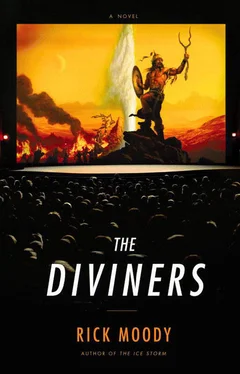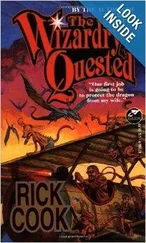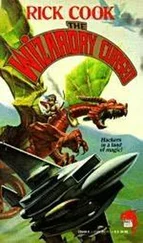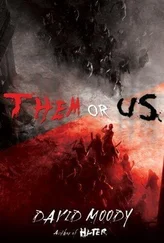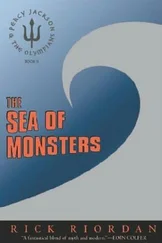“If there’s no book,” Vanessa says, “then what is there?”
“I don’t know. But there’s no actual book,” Allison replies. She stops. “I’m getting blisters.”
Not much farther. Always a little farther. Always a little more. The farther up you go, the farther you want to go. Once you get to the top of this hill, you just want to crest the next. You want to see the Solitario, the crater from the dormant volcano, and then you want to see the butte beyond.
“That doesn’t make any sense —”
“Unless Annabel —”
“Did it herself.”
“But why would she —”
“Well, she has this awful script about the wife of the Marquis de Sade. Handcuffs and ivory dildos and all that. I always put off dealing with her script.”
“I thought it was good.”
“You read it?”
The ridge of the hill, just another fifty paces. Only when they have trudged the fifty paces, thinking about a story idea that has apparently sprung into being without an author, only after they have gazed solemnly on the land to the south, across the border, only then do they see what is on the north side of the hill, cowering in the shadow of a rock formation. A family of Mexicans. Not exactly a family of Mexicans, or not certainly. The group of Mexicans has no patriarch. The family of Mexicans is composed of women and children, namely a woman who looks as if she’s maybe in her early thirties, a little heavy, careworn, wearing a nylon tracksuit; and a girl in her teens, in denim and halter top; a boy about fifteen, with a first faint growth of mustache; and two little boys, maybe six and eight.
What Vanessa notices right away is that all of them are wet, the legs of their trousers are wet. They have been immersed, maybe in a place where it is possible to ford the great muddy creek.
“Ohmygod, they scared the shit out of me,” Allison blurts out.
It’s the teenager, the boy, who looks as if he might do the two women harm. The others are frightened. And dusty. And wet.
Vanessa says, “Uh, hello. We’re really sorry we bothered you. We were just going for a. . for a hike.”
The absurdity of her worldly concerns, talking about some miniseries, who wrote the miniseries, who came up with the idea of the dowsers, when nearby this is taking place, the drama of woman and children in pursuit of things that this place offers, this country.
“You guys speak any English? Ingles? ”
The woman shakes her head. The teenage boy nods, then changes his mind.
“Allison, you speak any Spanish?”
“I can order dinner in Italian.”
“Where are you going? Can you answer that question?” Vanessa tries, with the family. “Can you say where you are going? What town? Terlingua?”
The woman in the tracksuit, whom Vanessa thinks of as the mother, shakes her head violently. But even if the family could answer where they were going, they wouldn’t, because where they are going is El Paso or Las Cruces or Albuquerque, where they have cousins or other relatives or neighbors who are going to help them slip quietly into the American economy.
“Do you have agua? ” Vanessa asks, and she gestures as if to drink from a flask or canteen. The Mexicans stare at her, as if the question is an impropriety, and then, as if there is some preliminary agreement among themselves to scatter in the face of Anglos, especially these filmmaker yanquis wearing too much black and standing in the middle of the desert without water or sunblock, the Mexicans start down the hill, heading north toward an expanse that will take them the whole morning to get across.
“Wait,” Vanessa says. “Wait.”
Allison says, “What are you doing?”
“They can’t,” Vanessa says. “There are bears out there and stuff. They can’t sleep out there.”
She addresses herself to the teenage boy, trying to act it out. “Don’t go, don’t go.”
But the mother begins to head off again, and the boys follow her soon after, and it’s only when they begin walking that Vanessa sees that the teenage boy has a good reason for looking fierce, for looking menacing, namely that he’s limping badly. It’s only after they’ve watched the Mexicans attempt to descend into the valley that Vanessa feels the beginning of responsibility in herself. For certain, this is a tonal color that she has read about but never quite known. She’s skeptical about the Mexican boy. She’s skeptical about what she should do about it. She’s skeptical about the part of American movies where the sentimentalists rush in. She’s skeptical about epiphany, about the Greek origin of the word, the making manifest. Simplicity nauseates her.
But in the moment of being undecided, intellectually, her physiognomy leaps into decisiveness without hesitation. There’s the border patrol somewhere in the distance, and the border patrol will be coming this way. And there is the danger of exposure, and there’s the danger of hypothermia or death by thirst, which is apparently a horrible way to die. She doesn’t know what she feels; she feels something in the crimson range, something in ultraviolet, but she knows she’s going to do something about the Mexican family and she doesn’t care what gets lost in the process.
“You have to help me,” she says to Allison, and she begins running down the hill after the pollos, and Allison the intern follows after, and in the illusionistic space of the desert, the pollos are a hundred yards away, though they seem much closer, and she seems to run after them without ever getting closer, calling all the while to the teenage boy. In the distance, she can see the mother, carrying one of the younger children now, as though the younger boy were a papoose. The little one nuzzles at her, the cuffs of his jeans pushed up so that Vanessa can see that his socks are lime green.
“Wait,” Vanessa says, “ wait. ”
And as if he understands, the teenager turns and stops, his face sweaty with discomfort.
“Do you need money? Dinero? We can give you dinero. ” She goes into her wallet, and she pulls out twenties, and she starts putting them into the hand of the teenager. “Take these. Just take them.” And then she points at her ankle. “Don’t you want to let me see your ankle?” And Vanessa pulls off her own hiking boot, hopping up and down, and then her rag sock, and she shows her ankle to the boy. She’s never realized that she has a perfect ankle before. But that’s what it looks like now. The perfect ankle of privilege. She has made her ankle available to him just so that she can point at him. “Let me see. Let me see if you’re injured.”
The mother has doubled back now, and she and her teenage daughter, if that’s who the younger woman is, are repeating the word no to the boy, over and over, and there are some other bits of advice in Spanish: No es tiempo de haraganear, de todos modos seria demasiado peligroso quedarnos por acá, y aquellas son unas locas, a lo mejor estan drogadas, así que deben alejarse de ellas, but the boy has taken the twenties and he is going to display his ankle now, with a kind of bravado, and he sits on the dusty hillside, and he pulls off his damp sneaker and his muddy sock, and he smiles gallantly, and Vanessa can see how his ankle is already swelling up.
“When did you do this? Did you injure yourself in the river? Trying to cross? You know it’s going to get worse, right? It gets worse for forty-eight hours. That’s what happens with a sprain. It’s a sprain, right? You didn’t get bit by a scorpion or anything, right?”
When she touches him, she touches him as if she knows, as if the skills of the nurse-practitioner are suddenly hers, though she’s just a hypochondriac with a home medical encyclopedia, nothing more. “You should let us drive you, wherever you need to go.”
Читать дальше
